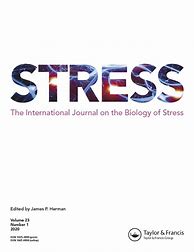Research Library
You can search for publications by selecting a category or keyword. All publications containing the selected category or keyword will be displayed below.
Categories
Keywords
Categories
Keywords
- Show all
- ADHD
- Anxiety/Panic
- Burnout
- Cancer
- Cardiovascular disease
- Chronic pain
- Cognitive function
- Cortisol/DHEA
- Costs
- Dementia
- Depressie
- Diabetes
- Global Coherence
- Hypertension
- Intuition & Consiousness
- Kids/Youth
- Leadership
- Meditation/Mindfulness
- Metabolic Syndrome
- Obesity/Eating disorder
- Pregnancy
- PTSD
- Resilience
- Schizophrenia
- Science HRV & Coherence
- Sleep quality & fatigue
- Social Coherence
- Stress
Practice effects of a breathing technique on pilots’ cognitive and stress associated heart rate variability during flight operations

Commercial pilots endure multiple stressors in their daily and occupational lives which are detrimental to psychological well-being and cognitive functioning. the Quick coherence technique (Qct) is an effective intervention tool to improve stress resilience and psychophysiological balance based on a five-minute paced breathing exercise with heart rate variability (hRV) biofeedback. the
current research reports on the application of Qct training within an international airline to improve commercial pilots’ psychological health
The Impact of HeartMath Resiliency Training on HealthCare Providers

Background: Health care providers must think clearly and make critical decisionsunder stressful circumstances. Providing effective strategies for managing stress in the moment helps mitigate the physical, emotional, and psychological impacts associated with caring for others and promotes resiliency. Staff may also utilize these techniques with patients and their families to help alleviate the symptoms of stress that may be experienced as the result of illness. Aim: The purpose of this study was to measure whether HeartMath techniques reduce stress and improve resiliency in health care providers. Methods: Study participants were asked to complete the Personal and Organizational
read more...A 6-Week Worksite Positivity Program Leads to Greater Life Satisfaction, Decreased Inflammation, and a Greater Number of Employees with A1C Levels in Range Published: 2019

Objective: To determine whether a 6-week Positivity Program could impact employee cardiovascular inflammation, blood sugars, cortisol, dehydroepiandrosterone (DHEA), and/or life satisfaction.
Methods: Pre- and post-study blood draw and life satisfaction questionnaire tracked changes in 10 cardiovascular and inflammatory
read more...Building Resilience in an Urban Police Department

Objective:The aim of this study is to examine a resilience training intervention that impacts autonomic responses to stress and improves cardiovascular risk, psychological, and physiological outcomes in police. Methods: Officers [(n=38) 22 to 54 years] modified emotional and physical responses to stress using self-regulation. Measurements include psychological and physiological measures [eg, heart rate variability (HRV), blood pressure, C-reactive protein)] obtained at three time intervals. Results: Age was significantly (P<0.05) associated with
read more...Applying Resilience Promotion Training Among Special Forces Police Officers

Police Special Forces (a.k.a. special weapons and tactics [SWAT]) officers are tasked with responding to the most critical situations, including incidents that require specialized skills and equipment beyond typical policing activities. In this study, we tested the feasibility of applying Arnetz and colleagues’ resilience promotion training that was developed for patrol officers to SWAT team officers (n = 18). The resilience promotion training program included psychoeducation focused on police stress and resilience, and the practice of resilience
read more...Police department Personnel Stress Resilience training: An Institutional Case Study

The objective of this case study was to test the impact in law enforcement personnel of an innovative self-regulation and resilience building program delivered via an iPad (Apple Inc, Cupertino, California) app and personal mentoring. The Stress Resilience Training System (SRTS) app includes training on stress and its effects, HRV coherence biofeedback, a series of HeartMath self-regulation techniques (The Institute of HeartMath, Boulder Creek, California), and HRV-controlled games. The stressful
read more...